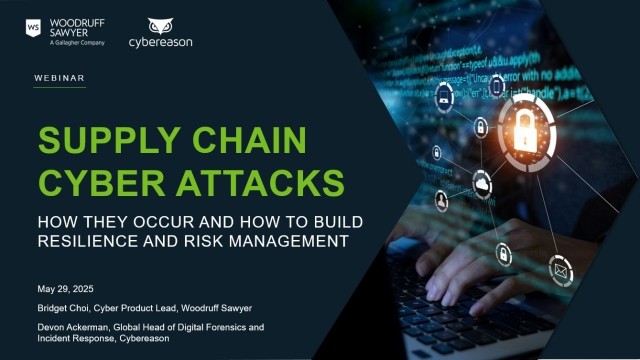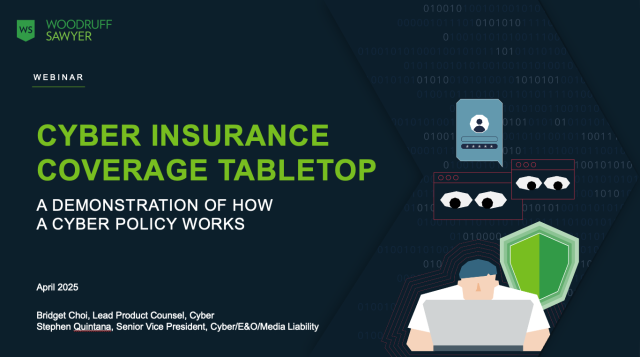Blog
SCOTUS TCPA Ruling and Impact on Insurance Coverage
On April 1, 2021, the Supreme Court of the United States ruled on the Telephone Consumer Protection Act (TCPA). This week, we’ll look at the ruling and what it could mean for insurance coverage.

The Telephone Consumer Protection Act
The Telephone Consumer Protection Act was enacted in 1991 to protect consumers from unwanted telemarketing phone calls, robo-dials, and text messages that may cost the consumer money. The legislation went into effect when most consumers still used landline telephones and specifically addressed automatic telephone dialing systems (ATDS).
In 2015, the Federal Communications Commission issued a clarification about how to apply the TCPA in an era when mobile phones were quickly becoming more popular than landlines.
The TCPA carries significant penalties for companies that violate the law, with fines up to $500 per consumer per violation or up to $1,500 for willful violations of the law. When you factor in the use of technology to reach thousands of consumers at a time, the penalties can add up very quickly.
The Court Case: Facebook, Inc. v. Duguid Et Al
Enter social media, specifically Facebook. One of the security features the social media platform offers is a text message sent to the account holder when someone tries to log into the account from a new device or browser.
Noah Duguid received such a text message from Facebook. Problem was, he didn’t have a Facebook account and didn’t want to receive the messages. He tried unsuccessfully to stop the messages and finally filed a lawsuit against Facebook under the terms of the TCPA, alleging “Facebook violated the TCPA by maintaining a database that stored phone numbers and programming its equipment to send automated text messages.”
At the heart of the TCPA case is the definition of ATDS, referenced in the court opinion, which states: “The TCPA defines such ‘autodialers’ as equipment with the capacity both ‘to store or produce telephone numbers to be called, using a random or sequential number generator,’ and to dial those numbers.” Consumers had to give prior consent to receive these calls.
Facebook countered that their computer logic security notification system did not fall under the definition of ATDS in the TCPA. The case wound its way through the court system and landed on the Supreme Court’s doorstep.
The Supreme Court accepted the case, looking at the definition of an auto-dialing system. In a unanimous ruling, the justices limited the definition of an ATDS to those devices that can store or generate random or sequential numbers.
The court opinion went on to say:
Expanding the definition of an autodialer to encompass any equipment that merely stores and dials telephone numbers would take a chainsaw to these nuanced problems when Congress meant to use a scalpel. Duguid’s interpretation of an autodialer would capture virtually all modern cell phones, which have the capacity to “store . . . telephone numbers to be called” and “dial such numbers.” .... The TCPA’s liability provisions, then, could affect ordinary cell phone owners in the course of commonplace usage, such as speed dialing or sending automated text message responses.
This narrow definition is expected to limit the impact of TCPA moving forward.
Twenty-one members of Congress, however, including some involved in drafting the original TCPA legislation, filed a brief in the Supreme Court case in support of TCPA, stating the intention of the legislation was to ban all robocalls, regardless of origin.
The TCPA remains a critical piece of legislation. By restricting calls made to cell phones using robocall technology, among other provisions, the TCPA prevents a countless number of unwanted robocalls every year, every day, and indeed every hour and minute, from intruding on Americans’ privacy, scamming their wallets, and overwhelming our confidence in the nation’s telephone networks. These calls harm business and consumers alike. For the foregoing reasons, amici respectfully request that the Court affirm Duguid v. Facebook, Inc., 926 F.3d 1146, 1151 (9th Cir. 2019)
Rep. Anna G. Eshoo (D-Atherton) and Sen. Edward J. Markey (D-Mass.), members of the telecommunications committees, have already indicated their intention to update the law to make “right what the Supreme Court got wrong.” Sen. Markey was one of the authors of the 1991 TCPA and has a vested interest.
The Impact on Insurance
TCPA coverage under an errors and omissions policy has traditionally been pretty limited. Given the potential for large penalties under the law, many insurance carriers have been reticent to provide coverage for such penalties.
Typically, firms with a TCPA exposure only have been able to find coverage for defense costs, and even that limited coverage is often subject to a sublimit.
And while this ruling is good for businesses with exposure to TCPA violations, such as digital marketing firms and other technology or communication companies, I don’t expect it to lead to an opening of the insurance market for this type of coverage.
For one thing, the E&O/cyber market is still challenged at the moment, and that creates an environment that limits the prospects of coverage expansions for the foreseeable future.
Given the market uncertainty and the possibility of future legislation, I don’t expect any changes to the insurance coverage for TCPA violations.
For more insights like this, check out the Cyber Notebook or get more Cyber Dan insights by subscribing to our YouTube channel.
Author
Table of Contents










